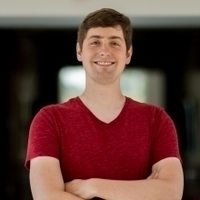Using Computer Science to Guide Kidney Exchange Markets
John P Dickerson, Assistant Professor, University of Maryland will discuss using techniques from computer science to guide the design of markets such as kidney exchange.
Speaker
John P Dickerson, Assistant Professor, Department of Computer Science, University of Maryland
Title
Using Optimization to Balance Fairness and Efficiency in Kidney Exchange
Abstract
The exchange of indivisible goods without money addresses a variety of constrained economic settings where a medium of exchange - such as money - is considered inappropriate. Participants are either matched directly with another participant or, in more complex domains, in barter cycles and chains with other participants before exchanging their endowed goods. We show that techniques from computer science and operations research, combined with the recent availability of massive data and inexpensive computing, can guide the design of such matching markets and enable the markets by running them in the real world. A key application domain for our work is kidney exchange, an organized market where patients with end-stage renal failure swap willing but incompatible donors. We present new models that address three fundamental dimensions of kidney exchange: (i) uncertainty over the existence of possible trades, (ii) balancing efficiency and fairness, and (iii) inherent dynamism. Next, we combine these dimensions, along with high-level human-provided guidance, into a unified framework for learning to match in a general dynamic setting. This framework, which we coin FutureMatch, takes as input a high-level objective (e.g., "maximize graft survival of transplants over time") decided on by experts, then automatically learns based on data how to make this objective concrete and learns the "means" to accomplish this goal - a task that, in our experience, humans handle poorly. Throughout, we draw on insights from our work with the United Network for Organ Sharing (UNOS) US-wide exchange and experiments on data from the National Health Service UK-wide exchange.
Speaker Bio
John P. Dickerson is an Assistant Professor of Computer Science at the University of Maryland, and a recent CS PhD graduate of Carnegie Mellon University. His research centers on solving practical economic problems using techniques from computer science, stochastic optimization, and machine learning. He has worked extensively on theoretical and empirical approaches to kidney exchange, where his work has set policy at the UNOS nationwide exchange; game-theoretic approaches to counter-terrorism and negotiation, where his models have been deployed; and computational advertising through Optimized Markets, a CMU spin-off company. He created FutureMatch, a general framework for learning to match subject to human value judgments; that framework won a 2014 HPCWire Supercomputing Award. Prior to his Ph.D., he worked at IBM and in R&D at a defense agency. He is an NDSEG Fellow, Facebook Fellow, and Siebel Scholar.
